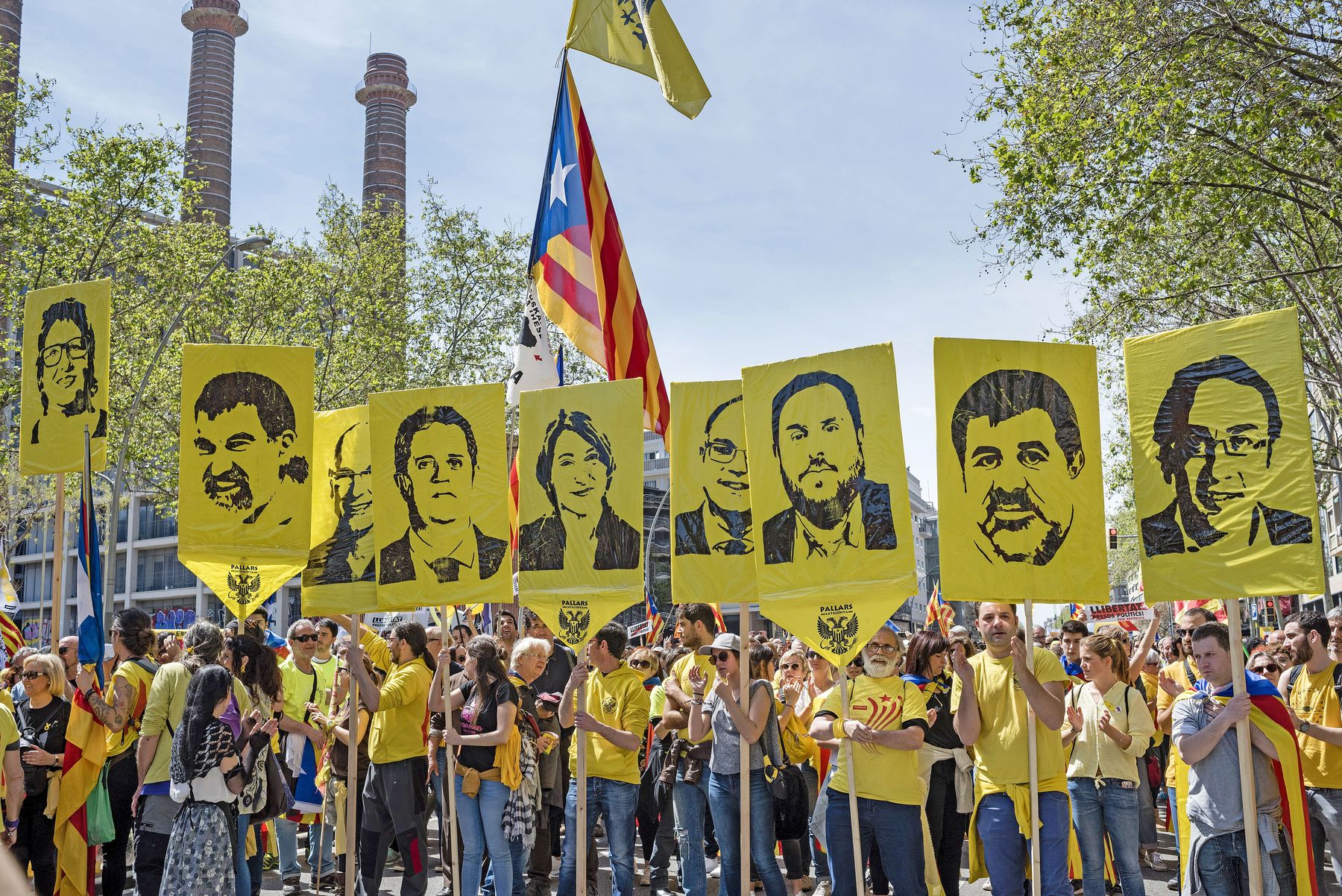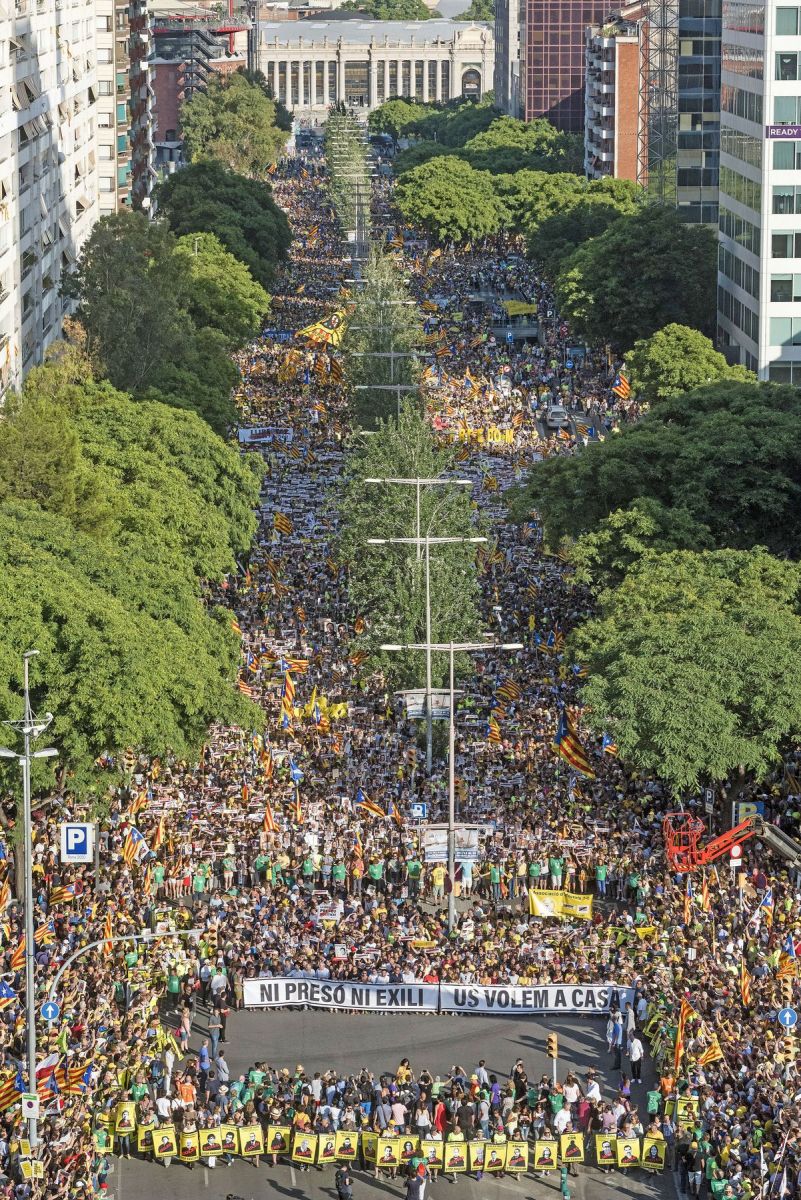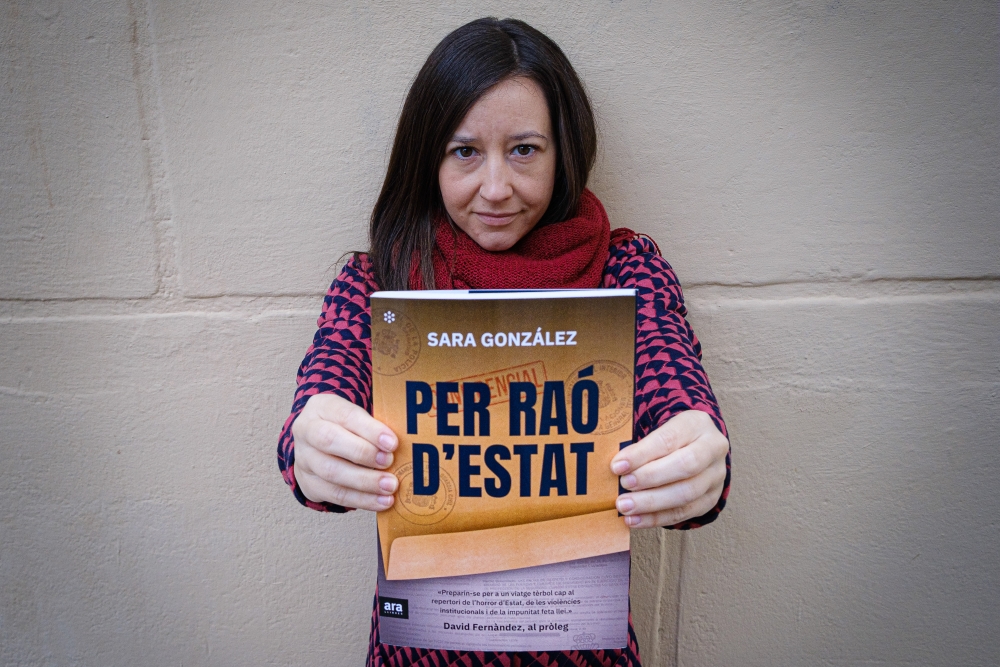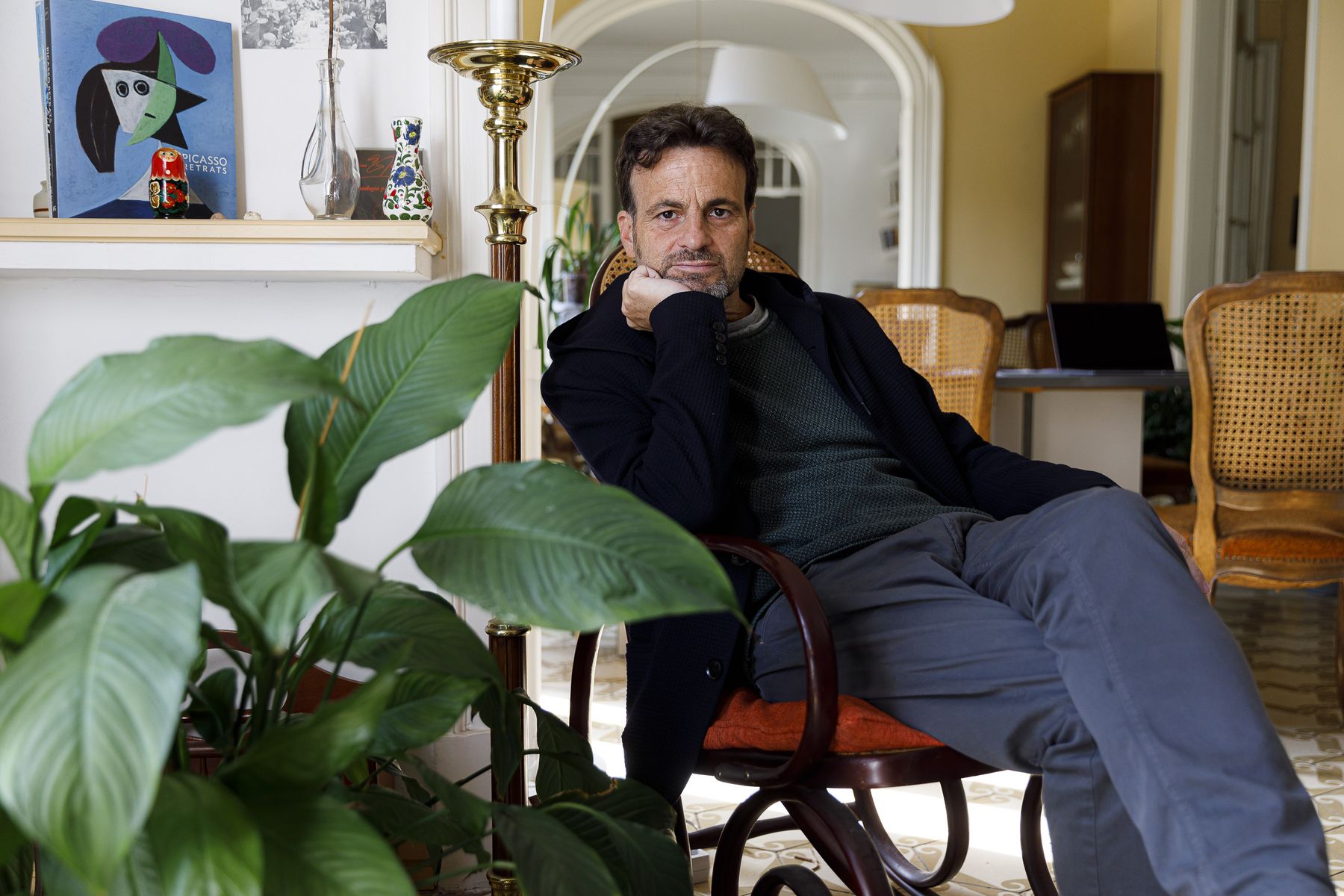Rules on irregularities
- The lawyers of the defendants are not the only ones who denounce the irregularities committed in the process against the independence process in Catalonia and the violations of fundamental rights. In addition, 120 university experts in Spanish State law have denounced these facts through a manifesto sent over the Internet. The text with the slogan “The banalization of crimes of rebellion and sedition” states that there was no violence in the criminal types described by the prosecutor and the Supreme Court, neither in the events of 20 September 2017, nor in those of 1 and 3 October 2017. There are not very many irregularities in the case.

In the report entitled “The violation of fundamental rights and public freedoms, the criminal response after 1 October and the application of Article 155 of the Spanish Constitution”, Ararteko Rafael Ribó states that “the intervention of the Supreme Court and the High Court of Justice is an important procedural issue and the objective is that the Superior Court of Justice of Catalonia should not be concerned.” In line with the Manifesto of Legal Practitioners, it follows: "The facts described by the prosecutor and the investigating judges are based on perverse arguments that do not correspond to what actually happened. When the investigation of crimes of rebellion, sedition, terrorism, criminal organization and the like violates the principle of criminal legality, it is a matter of imposing corrective sanctions and dismissing certain political positions for the future.”
In the opinion of Joan Queralt, professor of Criminal Law at the University of Barcelona, “from a legal and procedural point of view, in the process against the independence process there have been serious dysfunctions that make the whole process legally useless and democratically totally unfair.” He shows his outrage when he hears that there was violence. “In Catalonia and Spain we know very well what a rebellion is: Last was Lieutenant Colonel Tejero. That was a revolt. What has happened in Catalonia can be politically debatable, condemnable or applausible, each has his or her point of view, but in no case has it been a crime under the current penal code.” Carme Herranz Col·lectiu The Ronda group attorney shares this view: "A legal laboratory, a Frankenstein, has been put to the vote in the Supreme Court. The violence of rebellion is spiritual, not physical; it is pure laboratory construction”.
Àlex Solà, member of the ombudsman of Jordi Cuixart, together with Marina Roig and Benet Salellas, assured that “the urgency of political intervention has led them to abandon all guarantees of the criminal process. Contrary to the doctrine of the Supreme itself, Judge Marchena himself insisted that "it is not the time to talk about fundamental rights". In this case everything is exceptional. In this case, the procedural law of the enemy is being applied.” Professor Queralt adds: “All this is nothing more than the sad prelude to a long and serious injustice against the peaceful political leaders who have moved away from official thinking.”

There are laws that say that there is a specific strategy behind all irregularities and violations. "With Euroorders it has become clearer than anywhere else that Llarena had a strategy and that the content of his decisions has been adapting to what he thought was going to happen to him. Seeing that Belgium was in danger of not accepting the Euroorder, he withdrew it. A judge can't have strategy. The Euroorder is a form and Judge Carmen Lamela checked the box for the commission of a crime of corruption. It was a trick,” says attorney Herranz. In the case of precautionary measures, Professor Queralt considers that the same strategy has been implemented: “They have abused excessively from provisional detention, as their aim was to disable the elected, and have acted contrary to what the law says, even though the Constitutional Court ratifies them against their judgments.” Herranz explains this last point with the following example: "They've used a dynamic argument to keep the defendants in prison, but not for that. First they said that as a public office there was a risk of criminal reiteration, but when Joaquim Forn resigned from his act as a deputy, he forgot about that and that argument was in the second place. The risk of leakage has been interpreted according to what others have done, and this is serious, since the law must always be interpreted in an individualized way, only in relation to the person involved”.
Solà tells us about one of the irregularities he will report in the oral hearing in order to request the cancellation of the investigations. “The instruction has been carried out by delegation. Judge Pablo Llarena has not instructed anything, but has left the instruction in the hands of Examining Court No. 13 and the Civil Guard. Thus, tests have been conducted outside the procedure, without the possibility of opposition or intervention by the defendants, which contravenes all criminal principles.” Regarding the defence strategy, he announces that: “Not only will we make a defense of political backlash, but we will try not to forgive a single one.” As a first step, a preliminary problem of criminal harmonisation for the countries of the European Union (EU) has been presented to the Court of Luxembourg. They want to take account of the content of the judgment of the Court of Schleswig-Holstein which laid down the Euroorder against Carles Puigdemont and thus call into question the complaint of the Spanish courts.
Benet Salellas wrote the following: Jo acuso, who bears the prologue of Anna Gabriel and the intervention of Jordi Cuixart. Defense in judicis polytics [I denounce it. Defence in political courts] in the book's conclusions: “Political judgment shows that both the nature of the State and the maintenance of the prevailing order is the function of law.” And, according to Cuixart, he proposes this political reflection: “The struggle for the transformation of social organization always carries risks and must be accepted from the political conscience that whoever participates in the political struggle against the State is guilty. Guilty, yes, but not for the charges and crimes detailed in the indictment, but for the life and defense of something.”

Decalogue of irregularities and violations of rights
The judge is under
suspicion by the Controversial distribution system. Lawyers have denounced that the method of awarding the case against the referendum to conservative judge Juan Antonio Ramírez Sunyer has not been clear.
Partial investigator
Daniel Baena, lieutenant colonel of the Civil Guard responsible for producing reports against independence leaders, had an anonymous profile on Twitter to insult some of the accused, political parties and organizations involved.
The intangibility of parliamentarians in Article 57
of the Statute of Catalonia states that “the members of Parliament are untouchable in terms of the votes cast and the opinions expressed during the exercise of their responsibility”. However, they have called for prison sentences and disqualification for former President of the Catalan Parlament, Carme Forcadell, for the crime of criminal misdemeanour.
The Court having jurisdiction under
Article 57.2(a) of the Statute shall have jurisdiction in the High Court of Justice of Catalonia for the prosecution of disputes against members of the Parliament of Catalonia. However, the Supreme Court assumed this competence by considering that Parliament “turned its back” on the competence of the Constitutional.
The Examining Court No.
13 has carried out various actions through provisions which, because of their content, were to be carried out by interlocution. This prevents the submission of resources.
The Spanish National
Court cited Jordi Cuixart and Jordi Sànchez as a violation of the right to defence, without being aware of the prosecution’s complaint. The members of the Government were summoned 48 hours in advance, insufficient to prepare for the defence of the two parties.
The processing interlocution is
not firm, as Pablo Llarena admitted that he did not inform Toni Comín and Meritxell Serreti of his interlocution for the conclusion of the summary. That is why the recourse to reform was admissible.
In order for
there to be a crime of rebellion and sedition, there must be a violent uprising, but both the German court in Schleswig-Holstein and the prosecutors in Belgium and Scotland have shown that this has not happened.
Judge Pablo Llarena opposed the jurisprudence
of the Constitutional Court itself in order to temporarily dismiss the electorate by means of provisional disqualification.
The unagreed call
for a referendum is decriminalised, according to the explanation and the reasons of Law 2/2015. It does not have a sufficient legal and criminal character and is therefore not a criminal offence.
This report has been published by La Direct in Catalan and has been translated into Basque thanks to the Creative Commons free licenses. On the occasion of the trial against independence, La Direct has published a monographic periodical of 80,000 copies, which has been distributed free of charge in the Catalan countries.

Abokatua, aktibista soziala eta Espainiako Kongresuko diputatua da Jaume Asens (Bartzelona, 1972). Urtarrilaz geroztik, Pablo Iglesias ordezkatu du Unidas Podemos talde parlamentario konfederalaren presidentetzan. Abokatu gisa, giza eskubideen eta mugimendu sozialen defentsak... [+]

























